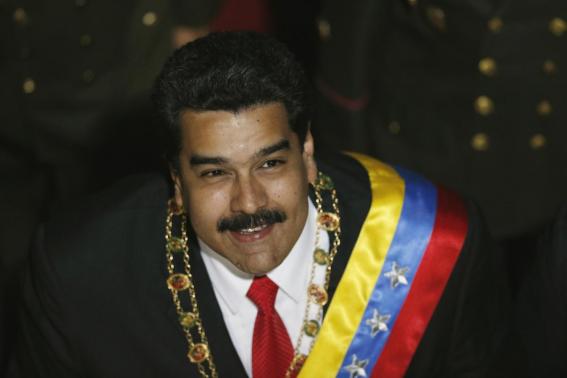Venezuela’s economy is hit by recession with its vital financial indicators ranking at or nearly the bottom. However Venezuela’s President Nicolas Maduro, blamed its political rivals for the financial crisis. In the year 2014, the nation witnessed and violence indicating the 4 months of protests that lead to major disruption and killed 43 people including government supporters, security officials and demonstrators. The booming trade in nation’s goods are strikingly in contrast to the economic distress across the country.
Venezuela’s economic performance has deteriorated even more than Greece and Ukraine. Venezuela is knocked by rapidly rising inflation and acute shortage of basic goods and medicines. The people of the country are struggling very hard just to meet their basic requirements. More than one third of the population is living in poverty (according to recent studies). Moreover, increasing hardship for nation’s working class could pave path for big trouble for the government.
In 14 years of his rule, the former president, Hugo Chávez directed billions of dollars earned in oil sector towards national social programs. During his reign the poverty significantly dropped which in turn led to a rise in his popularity among the poor. But Nicolás Maduro became his successor and inherited the torpid economy which worsened further due to a sharp decline in oil prices.
Mr. Maduro failed in his attempt to persuade the OPEC cartel to support the oil prices. He said that an ultimatum will be given to the food distributors to provide solution to the supply concern or will have to bear the consequences of the law. Rising adversities in daily life are wearing the patience of Venezuela’s people. China has been the largest creditor of Venezuela which provided an assistance of around $50 billion in past 8 years.
Venezuela’s economy is struggling with its inflation rate at 70% or even higher. The citizens of the country are standing in long queues just to fetch their basic necessities from the gradually emptying shops. This phase has come one the back of almost 10 years long oil boom period when the country bagged in more than $800 billion in oil revenues. Besides staggering on the edge of financial collapse, the country is also facing social distress.
The socialism in Venezuela in twenty first century was thought to be quite different from its exploitive twentieth century. In Venezuela the democrats get imprisoned while the economy deprives large amount of population. Now, it’s high time for changes which if not made, then the price of socialism will be paid by destruction of human rights.
Crude oil accounts for nearly 95% of the country’s exports and oil & gas together accounts for 25% of Venezuela’s GDP. The energy reliant economy requires the crude oil prices to remain above $100 in order to sustain their economy. Meanwhile the mounting inflations couple with currency control measures are weighing heavily over the basic needs of people including food and medicines. The shortages have knocked down the capability of the country to even provide medical care facilities to its people.
Venezuela’s economic performance has deteriorated even more than Greece and Ukraine. Venezuela is knocked by rapidly rising inflation and acute shortage of basic goods and medicines. The people of the country are struggling very hard just to meet their basic requirements. More than one third of the population is living in poverty (according to recent studies). Moreover, increasing hardship for nation’s working class could pave path for big trouble for the government.
In 14 years of his rule, the former president, Hugo Chávez directed billions of dollars earned in oil sector towards national social programs. During his reign the poverty significantly dropped which in turn led to a rise in his popularity among the poor. But Nicolás Maduro became his successor and inherited the torpid economy which worsened further due to a sharp decline in oil prices.
Mr. Maduro failed in his attempt to persuade the OPEC cartel to support the oil prices. He said that an ultimatum will be given to the food distributors to provide solution to the supply concern or will have to bear the consequences of the law. Rising adversities in daily life are wearing the patience of Venezuela’s people. China has been the largest creditor of Venezuela which provided an assistance of around $50 billion in past 8 years.
Venezuela’s economy is struggling with its inflation rate at 70% or even higher. The citizens of the country are standing in long queues just to fetch their basic necessities from the gradually emptying shops. This phase has come one the back of almost 10 years long oil boom period when the country bagged in more than $800 billion in oil revenues. Besides staggering on the edge of financial collapse, the country is also facing social distress.
The socialism in Venezuela in twenty first century was thought to be quite different from its exploitive twentieth century. In Venezuela the democrats get imprisoned while the economy deprives large amount of population. Now, it’s high time for changes which if not made, then the price of socialism will be paid by destruction of human rights.
Crude oil accounts for nearly 95% of the country’s exports and oil & gas together accounts for 25% of Venezuela’s GDP. The energy reliant economy requires the crude oil prices to remain above $100 in order to sustain their economy. Meanwhile the mounting inflations couple with currency control measures are weighing heavily over the basic needs of people including food and medicines. The shortages have knocked down the capability of the country to even provide medical care facilities to its people.





